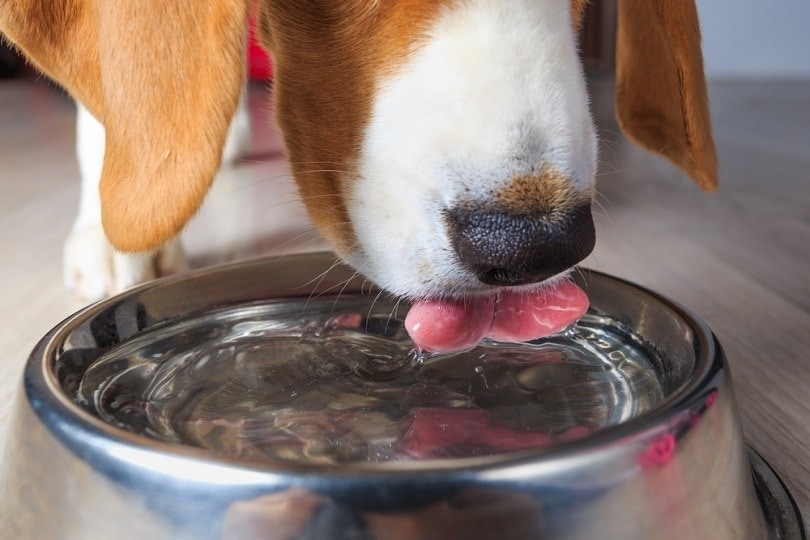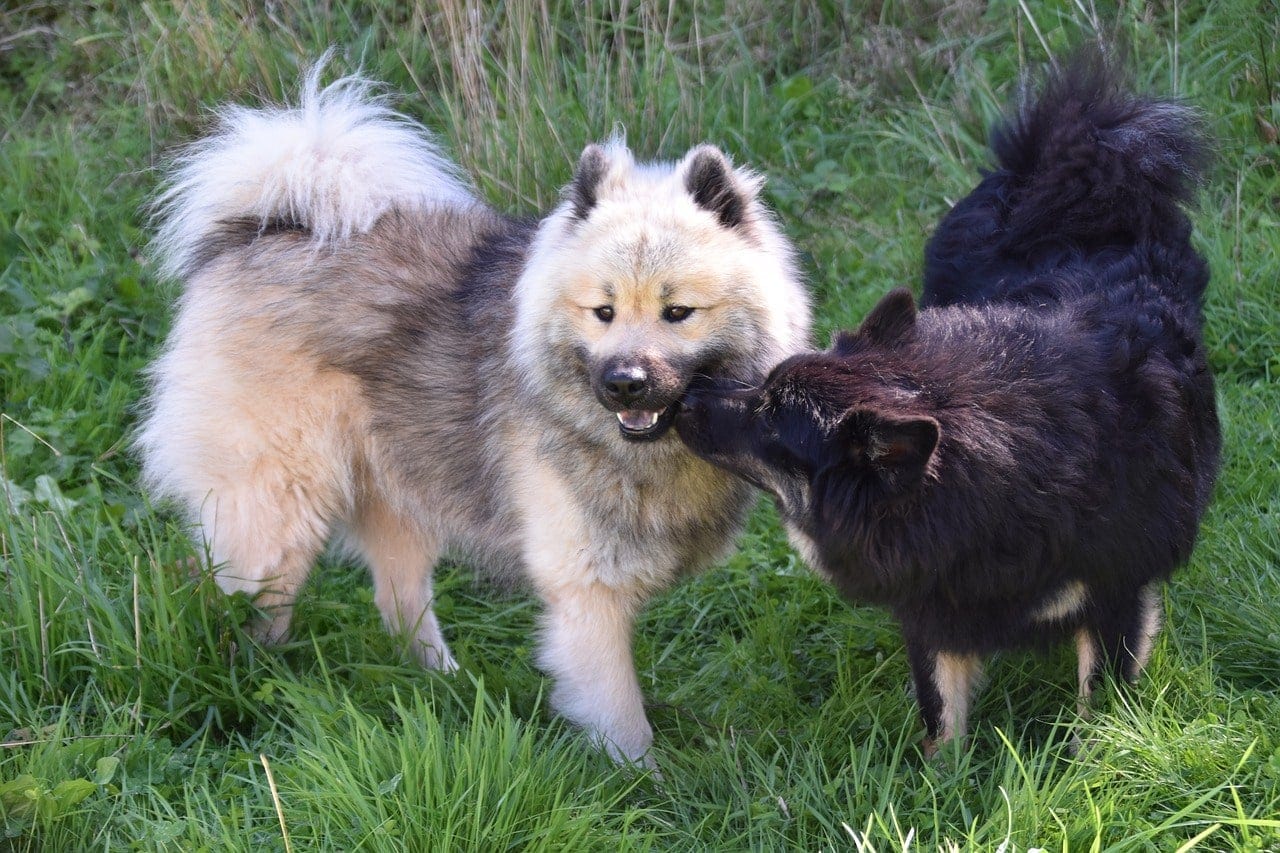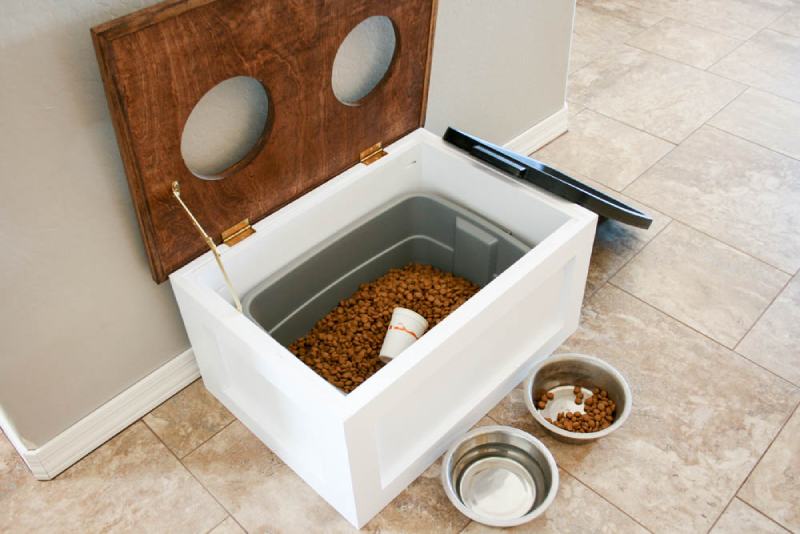Can Dogs Eat Sour Cream? Vet-Reviewed Facts & Considerations

Updated on

When you sit down to enjoy a nice meal and your beloved canine is giving you those oh-so-hard-to-resist puppy eyes, it’s simply human nature to want to share some of your food with your furry family member. But discerning dog owners know that this isn’t always in their dog’s best interest, which is why you’re doing your research before feeding your dog any of your food.
Luckily, sour cream isn’t harmful to dogs. So, after heaping some sour cream on your fajitas, is it okay for the dog to lick the spoon? Or maybe you want to put a dollop of sour cream on their food to liven it up. Is that okay?
While a tiny taste of sour cream is not going to hurt your dog and can even provide them with a bit of calcium, that doesn’t mean you should hand over the whole tub. Also, there are certain situations in which you should not feed sour cream to your dog.
Let’s investigate this food and its effects on canines in more detail.
 Is Sour Cream Safe for Dogs?
Is Sour Cream Safe for Dogs?
While sour cream is non-toxic to canines and won’t cause any issues in most healthy dogs, many canines are lactose intolerant. So, sour cream won’t kill them, but they are likely to experience gastrointestinal discomfort, which can include gas, vomiting, and diarrhea.
This does not happen to every dog, as some can still digest lactose in their adult life. Still, if you are not sure about a food, you should introduce it to your dog slowly. Start with a small amount so your dog’s digestive system has a chance to get used to it and you can see if they have any intolerance.

When Shouldn’t You Feed Your Dog Sour Cream?
If you already know that your dog cannot tolerate milk, keep sour cream away from them. Lactose intolerance is common in dogs, particularly after their transition from puppyhood to adulthood. The reason is that as puppies grow, they lose the ability to secrete lactase, an enzyme needed to digest lactose, which is a sugar in milk. This sugar will pass to the large intestines undigested and will then be fermented by gastrointestinal bacteria, resulting in excessive gas, distention, discomfort, and potentially, vomiting and diarrhea.
Sour cream has less lactose than full-fat milk. It’s made by fermenting regular cream with lactic acid bacteria. The bacterial culture thickens the cream in a process called souring, as it gives the milk a characteristic mildly sour taste. So, if your dog can drink milk without any problems, they should be fine with sour cream.
Another reason to not give sour cream to your dog is if they are already overweight. Sour cream is high in calories and especially high in fat, which can easily contribute to excessive calories and cause your dog to gain weight. Obese dogs should be kept far away from this fat-laden snack.
Does Sour Cream Benefit Your Dog?
We eat sour cream mostly for the taste and texture, though there are some health benefits for both us and our canine companions.
Sour cream, like many dairy products, contains calcium. As you might be aware, calcium helps to keep your bones and teeth strong, and it does the same for your dog. Unfortunately, sour cream isn’t the best source of calcium. A 15-gram tablespoon of sour cream has just 15 milligrams of calcium. While some might argue that it’s better than nothing, your dog’s food already contains all the calcium that they need.
Aside from calcium, sour cream contains trace amounts of other vitamins and minerals, including vitamin A, iron, sodium, and phosphorus. Granted, these are only found in trace amounts in sour cream, so they’re not going to provide your dog with any major benefits.
 Downsides of Feeding Your Dog Sour Cream
Downsides of Feeding Your Dog Sour Cream
We talked about the minor benefits your dog could receive from an occasional sour cream snack, but what about the drawbacks?
While your dog might enjoy a few spoonfuls of this tasty treat, it should only be given in moderation. It carries a major possibility of weight gain, which can quickly lead to an overweight dog. This can be broken down into two main issues with sour cream: it’s high in fat and high in overall calories.

High in Calories
Two tablespoons of sour cream, a small serving by most standards, packs a total of 60—90 total calories. That means that you can easily consume several hundred calories in just a few bites. Remember, these are official tablespoons, not the heaping helpings that most people generally spoon out.
High in Fat
While the overall calories are a major concern, they’re not the only nutritional concern. The other problem is that most of those calories are from fat!
Compounding the issue is what’s missing: There’s almost no protein in sour cream. So, you’re pretty much just feeding your dog a big helping of pure fat. Even peanut butter has protein to help make it a more beneficial snack.
Alternatives to Sour Cream for Dogs
What alternatives might you offer your dog instead of sour cream? Similar to us, our dogs can often benefit from a lighter version of foods. Going with a light sour cream instead of a full-fat version can trim a significant amount of the excess fat and calories, making this a much healthier choice that still tastes the same. Plus, most light sour creams have more protein than the regular versions. That said, be sure to check the ingredient list, and avoid any products with added chemicals like preservatives or thickeners.
Even a minor change, such as opting for organic sour cream over regular, can make a difference. Organic sour cream should be free from chemicals or preservatives, and certain manufacturers even add the lactic acid cultures a second time after pasteurization, providing more beneficial lactic acid bacteria to your pup’s gut.
Another alternative would be to give your dog a few spoonfuls of plain Greek yogurt. Greek yogurt is full of probiotics that can aid the digestive system. This can provide additional benefits not found in most sour creams. Plus, yogurt is much higher in protein than sour cream is. This means that you’ll be boosting your dog’s nutrition while providing them with a tasty treat.
Conclusion
A small taste of sour cream isn’t toxic to your dog, but there are some drawbacks to be aware of. Mainly, you need to pay attention to the high overall calories and heavy fat content. Alternatives like light sour cream and plain yogurt can allow you to share your snack with your dog without exposing your beloved pup to the drawbacks of regular sour cream.
Related Reads:
Featured Image Credit: Pikist

 Is Sour Cream Safe for Dogs?
Is Sour Cream Safe for Dogs? Downsides of Feeding Your Dog Sour Cream
Downsides of Feeding Your Dog Sour Cream









